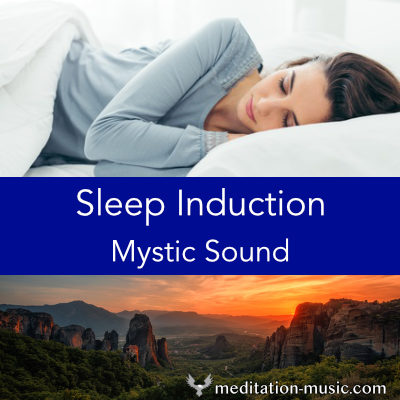Sleep Music
This website provides professional and very effective sleep inducing music.
Learn more about the neuroscience behind that makes this music so special and effective.
Please check out the music for free or explore the store.
DEMO SAMPLES - Use of headphones will provide the most optimal experience, but are not required
Getting a full night of rest is as vital to your health as food and water. However, with busy schedules and loud neighbors, falling asleep on time is not always a simple task. Listening to relaxing music is one method that’s proven to be effective.
While many types of music can be helpful, a wealth of research points to the fact that some types of music are better for rest than others. Finding the right type of music is the first step to incorporating this method into your sleep routine.

How does sleep inducing music work?
It’s clear from everyday experiences that music can help people fall asleep. For example, if you listen to music that’s too relaxing while you’re driving a car, you may find yourself getting too drowsy and needing to change the song. You can use this to your advantage, however, by strategically listening to this type of music when you need to fall asleep quickly.
By slowing down your heart rate, distracting you from racing thoughts, and inducing positive chemicals in the brain, relaxing music makes it much easier to fall asleep. But why do certain tunes make us want to shut our eyes and rest, and others do not? Studies all over the world have investigated this fascinating phenomenon.
It turns out that there are a few important characteristics to look for when choosing sleep music. The best music for deep sleep has the following:
- Slow tempo: Songs that have about 60 to 80 beats per minute are ideal. Your heartbeat begins to slow down when you’re falling asleep, so songs that mimic this slow heartbeat help move things along.
- No lyrics: Although there are plenty of relaxing pop songs out there, it’s better to choose a song that has no words. This allows your brain to turn off fully.
- No associated memories: Be sure to listen to music that doesn’t remind you of any particular person or place. Otherwise, you may send your brain spinning off into nostalgia and other strong emotions.
- Length: The length of each song can also play a role. Since it can take a few minutes for your heart rate to slow down, a song that lasts at least 5 minutes is ideal.
- Consistency: Listening to similar music every night can help. Your brain will start to associate those sounds with rest, so the music becomes a signal that it’s time to start turning off for the night.
What causes difficulty falling asleep?
Insomnia is caused by a variety of different issues. Some of them are physical, while others are psychological. They can be temporary or permanent, but going to sleep with music playing helps avoid letting these issues impact your sleep.
Some common causes of sleep deficiency include:
- Anxiety: Whether you have an anxiety disorder or are just prone to worrying, anxious thoughts can keep you up at night. They make it difficult to fall asleep in the first place, and they often wake you up in the middle of your sleep.
- Depression: If you suffer from depressive thoughts, it’s quite possible that you also have trouble falling asleep. Insomnia can also cause or worsen depression, making it difficult to tell which came first.
- Other mental health issues: Other issues like PTSD can also disrupt sleep.
- Medical: Many health issues, such as allergies, asthma, stomach problems or chronic pain can make it difficult to rest due to physical discomfort.
- Medications: Insomnia is a side effect of many medications, including pain medications, weight loss products and antidepressants.
- Unhealthy sleep habits: Sometimes, insomnia isn’t caused by any particular condition at all, but instead is a result of our own poor routines. Sleeping at irregular times of the day, sleeping with the lights on, and eating or drinking before bed can all worsen the quality of your sleep.
Why is sleep so important?
Scientists don’t know exactly how sleep works, but they do know that it’s essential. Not sleeping well makes it more difficult to do well at work or school, and it increases your risk for both physical and mental disorders. Scientists have linked poor sleep quality with depression, lack of concentration, high blood pressure, kidney disease and several other chronic health issues.
Getting plenty of deep sleep has many health benefits. It boosts energy and creativity, and it improves memory and concentration. It also facilitates learning. Sufficient sleep also helps your body maintain a balanced weight and strengthens the immune system. Listening to the right music for sleep helps you reap all of these benefits.
If you have trouble going to sleep then relaxing or meditation music may be the answer you’re looking for. Look for music that’s sleep inducing, relaxing and easy on the ears. Your body and your mind will both thank you.



